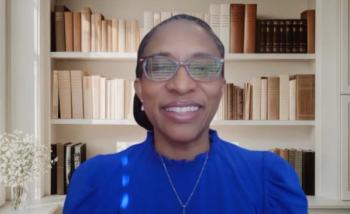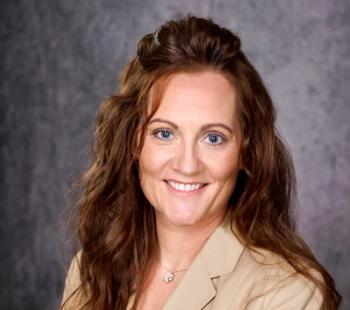
CMS leader says health innovation must be accessible to everyone | HLTH Conference

Chiquita Brooks-LaSure, administrator of the Centers for Medicare and Medicaid Services, said technological advances don't do enough if disadvantaged patients can't benefit from them.
Las Vegas - Chiquita Brooks-LaSure says she’s seeing things she hasn’t seen before.
Far too many patients are struggling to get the care they need, said Brooks-LaSure, the administrator of the Centers for Medicare and Medicaid Services.
In discussions with patients, she said, “I’ve been moved by how fragile the health system is in a lot of our country.”
In a conversation Monday at the HLTH Conference, Brooks-LaSure urged leaders of healthcare organizations and technology companies to keep patients, affordability, and accessibility in mind. CMS programs serve 150 million people, nearly half of all Americans.
“It doesn’t matter if there’s an innovative product if people in our programs can’t access it,” she said.
Brooks-LaSure talked about the importance of working in partnership with the private sector to close disparities and to involve the communities in solutions. “When we are not listening to every community, we as a country pay the price for that,” she said.
She hailed the expansion of telemedicine in expanding access to care. Virtual care has expanded dramatically during the COVID-19 pandemic.
“Virtual care has been a lifeline for so many people across the country,” Brooks-LaSure said.
At the same time, healthcare organizations have been pressing Washington for reforms to ensure
The public health emergency is slated to continue into mid-January and President Biden’s administration has pledged to offer notice 60 days before ending the designation. At the HLTH discussion, Brooks-LaSure said that since the administration hasn’t issued that 60-day notice, it’s likely the emergency will continue beyond the middle of January.
The Biden administration has placed a high priority on improving maternal health, with a particular focus on women in minority communities. “This is a presidential priority,” she said.
“It’s really a disgrace where our country is in maternal health outcomes,” Brooks-LaSure said. She noted the higher rate of maternal mortality in Black women and Native American women.
“The numbers are really devastating. And it’s not just income related,” she said. While she said the common perception is that maternal mortality is a problem affecting only those with lower incomes, she said too many pregnant patients of all incomes are dying.
CMS has launched
Hospitals are submitting data to CMS for the program. Brooks-LaSure said she’s excited about the program because health systems are anxious to obtain that status.
“I love how competitive everyone is,” she said.
Healthcare leaders should work with the government as a partner to ensure that new technologies help improve healthcare for everyone, she said.
“It’s critical that we move the needle on improving our healthcare system,” she said.
In closing, Brooks-LaSure said, “When we’re not taking care of the least among us, it affects all of us.”






























